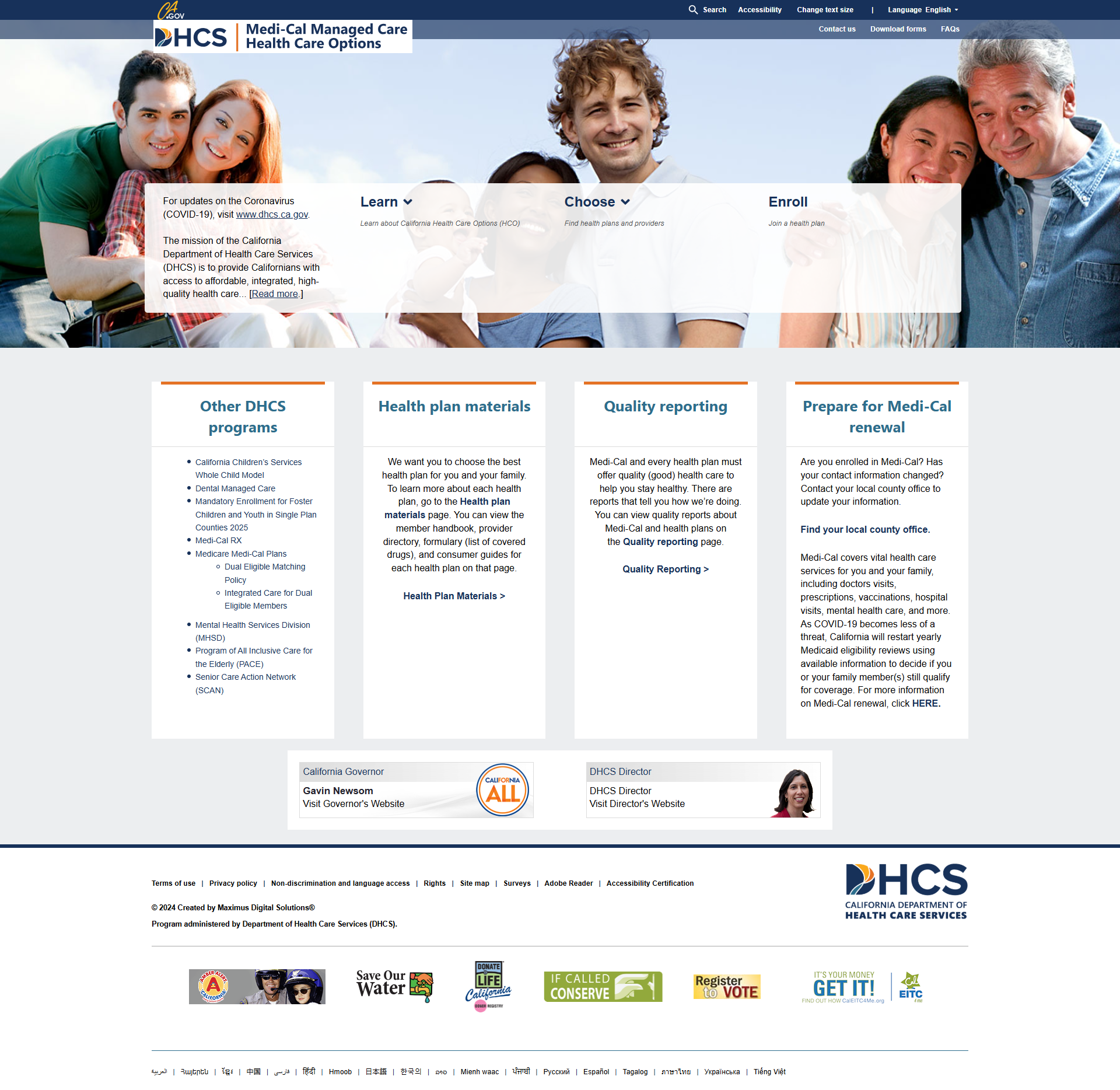Challenge
Accessibility demands continuous attention. Digital platforms are constantly changing as content is added or updated. As soon as you build an accessible site or remediate an existing one, it’s imperative that you remain proactive. This includes having a plan to ensure the content added to your site or app adheres to accessibility standards. It’s essential to stay on top of evolving regulations. Equally important is having the latest accessibility testing, process, and remediation tools at your fingertips.
When California updated its minimum accessibility guidelines, DHCS turned to Maximus to make sure the HCO website remained compliant. The good news? We already had a maintenance plan in place to get there.
Solution
Our plan included regular ongoing, in-depth accessibility reviews of the HCO website. We then addressed any areas that required remediation, including a process that ensures digital content is tagged correctly (i.e., labeled) and organized for people who use a screen reader or other assistive technology. We analyzed website components and identified areas that impacted the website's accessibility, including color contrast, keyboard focus, and coding validity. We re-tested the site each time we made corrections to ensure the remediation was successful.
But we didn’t stop there. We updated the website templates to ensure new pages would start compliant with the latest Web Content Accessibility Guidelines (WCAG) standards. We also developed a customized test plan to make sure new content was assessed as it was being added to the site.
The Maximus difference
Following our efforts, DHCS posted the signed website accessibility certification for the HCO website. The site accommodates assistive technologies, provides web content in various formats, and follows accessibility standards. Our process keeps the HCO site digitally inclusive for people with diverse abilities and improves the digital customer experience for all Medi-Cal members who are making important choices about their healthcare coverage.

